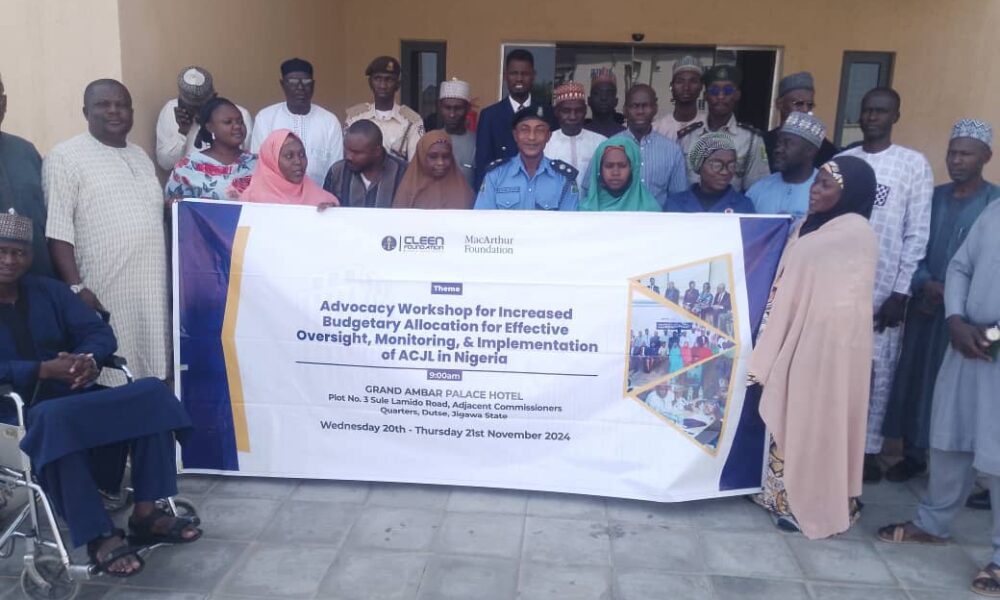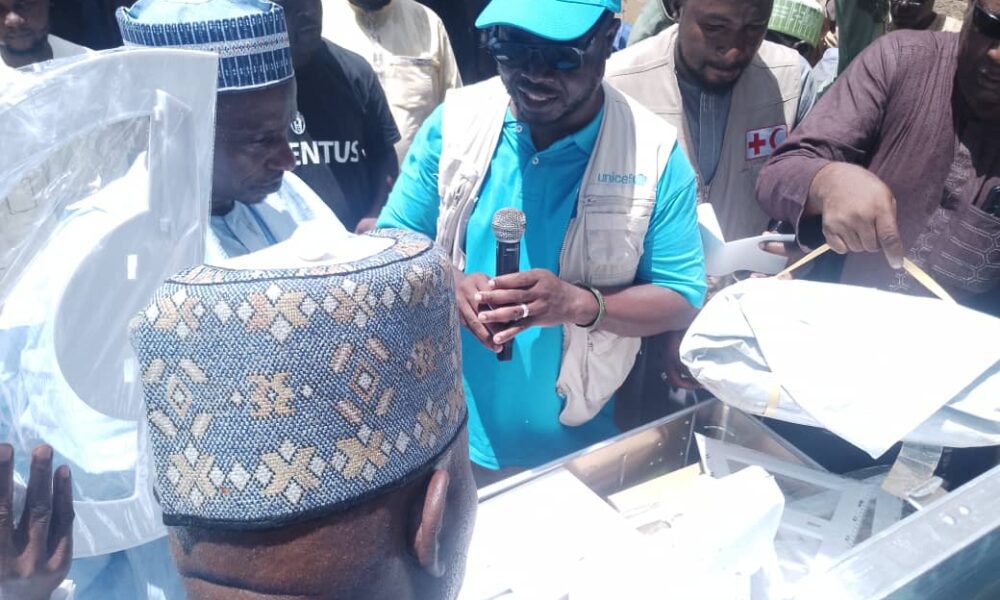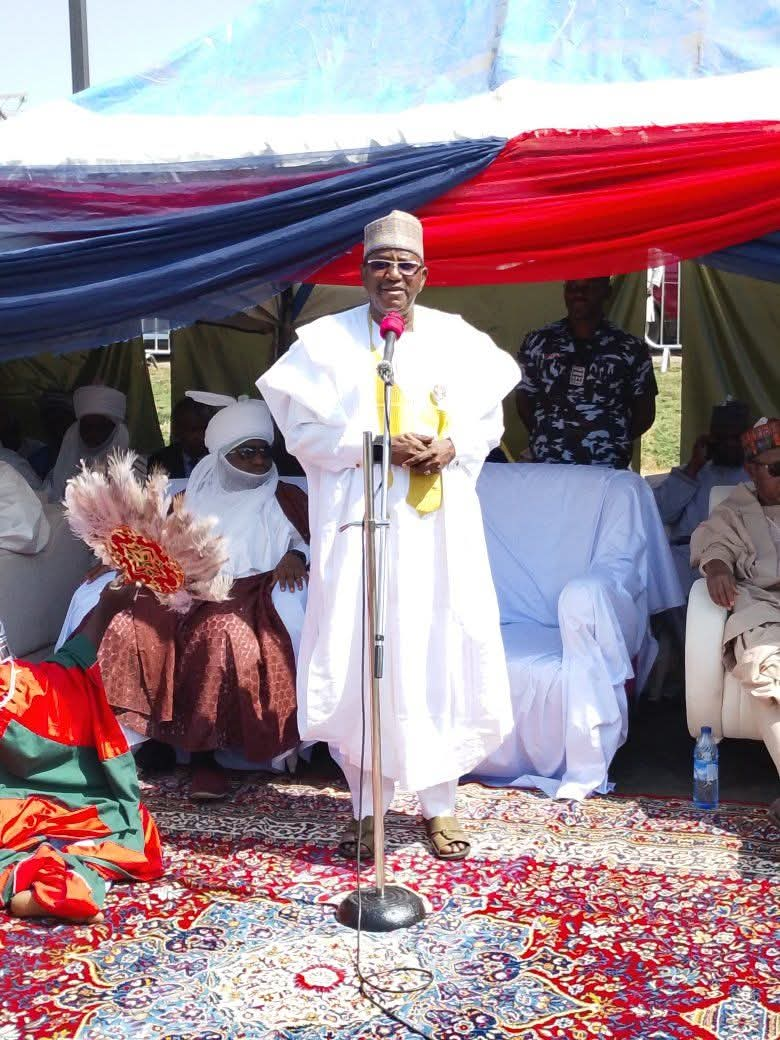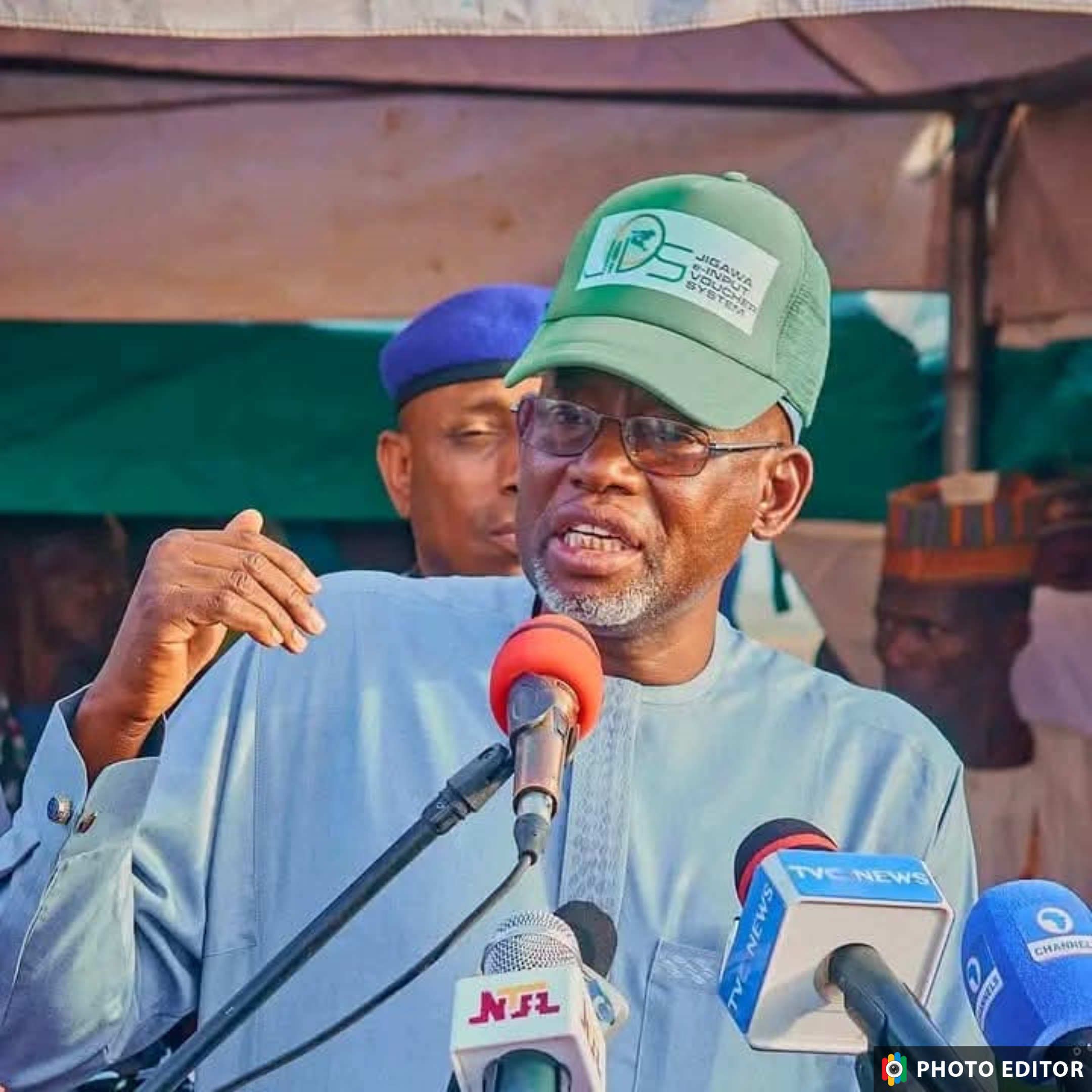By Ahmed Rufa’i, Dutse
The effective implementation of the Administration of Criminal Justice Act (ACJA) in Jigawa State is being hampered by poor funding and widespread poverty, according to observations by the state’s ACJA Compliance Level Actors.
This was highlighted during a two-day workshop on the ACJA 2015, organized by CLEEN Foundation with support from the MacArthur Foundation, at the Grand Ambard Hotel in Dutse.

Acting Executive Director of CLEEN Foundation, Peter Maduoma presented findings from research on compliance levels across eight project states. He emphasized the need for adequate budgeting, enhanced state capacity, and strategic advocacy to close the justice gap and ensure the effective implementation of ACJA provisions.
“The beauty of any law lies in its effective implementation by responsible agencies and public understanding of its benefits,” Maduoma said.
He noted that while the ACJA has been enacted across all 36 states, significant work remains to ensure its success.
The acting executive director noted that it will also take an overview of state capacity to facilitate the effective implementation of ACJA regime, Consider the Justice Gap and how to close them through State Capacity in the area of good and adequate Budgeting, and the critical role of Strategic Advocacy and Communication as a Tool for Policy Formulation and Change.
According to him, “For us in CLEEN Foundation, it is important that all the deliberations in this two-day workshop will lead to great improvement in the work we all have been doing in the advancement of the ACJA/L across the nation and particularly in our states”.
Explaining further he said, as at today the ACJA has been enacted as law across the 36 states of the Federation. However, it is not “Uhuru” yet because the beauty of any law or legislation lies in the effective and efficient implementation of its content by the agencies that have been saddled with that responsibility as well as the perception and understanding of the citizenry as to what benefits are derivable thereof for a better society.
The workshop brought together a broad range of stakeholders, including civil society organizations, media representatives, human rights groups, police, correctional services, legal professionals, and the state assembly. Participants identified key challenges and developed advocacy strategies to address them, with the aim of advancing the ACJA’s goals of fostering justice, peace, and societal development.




